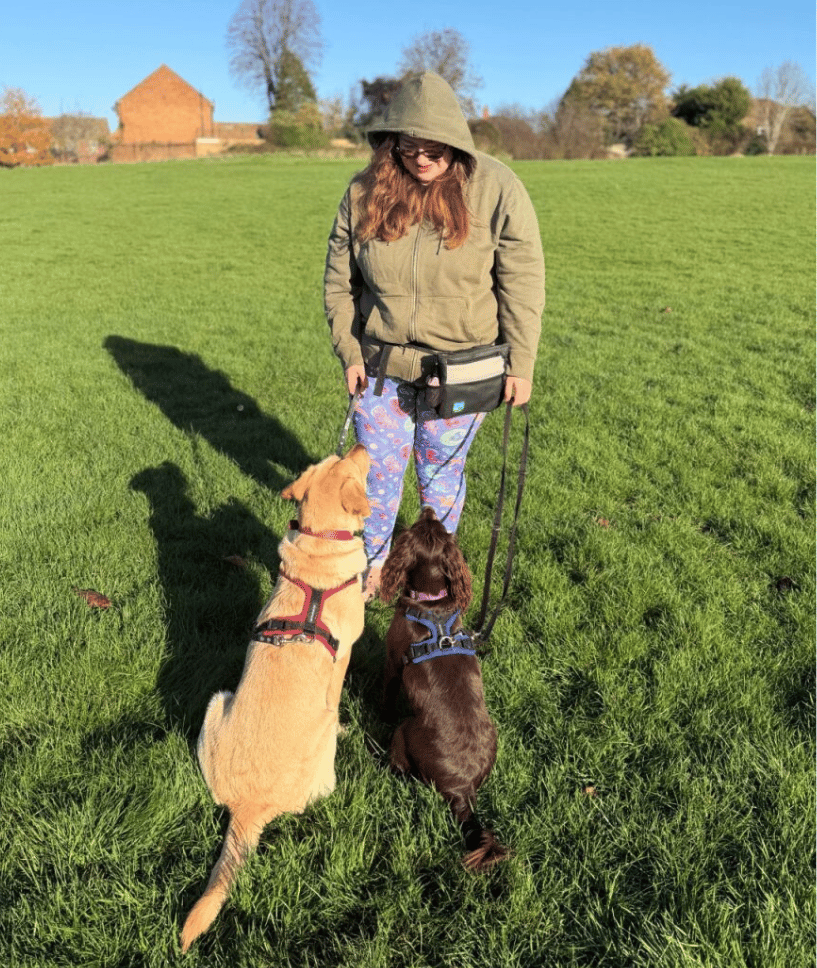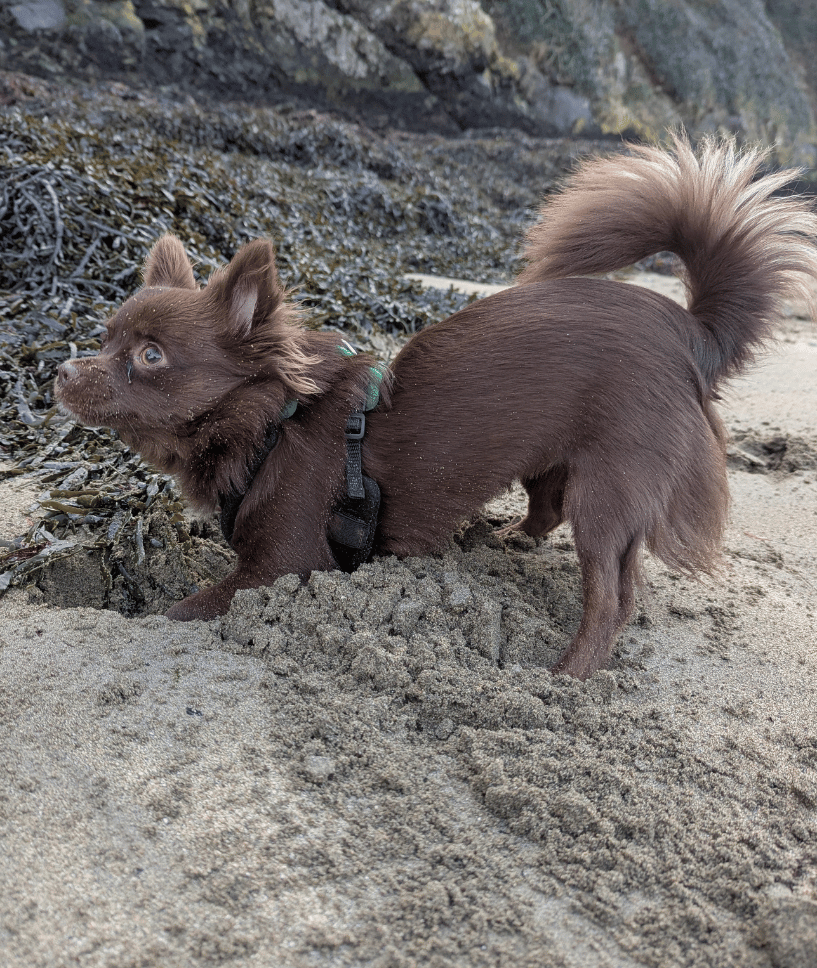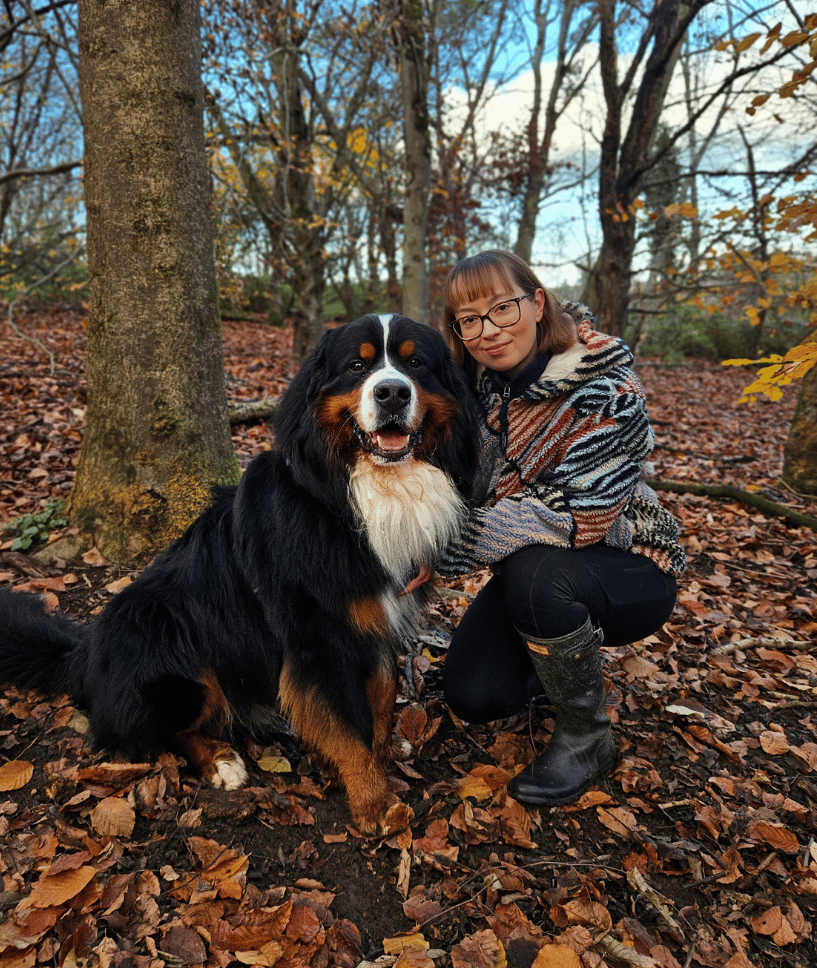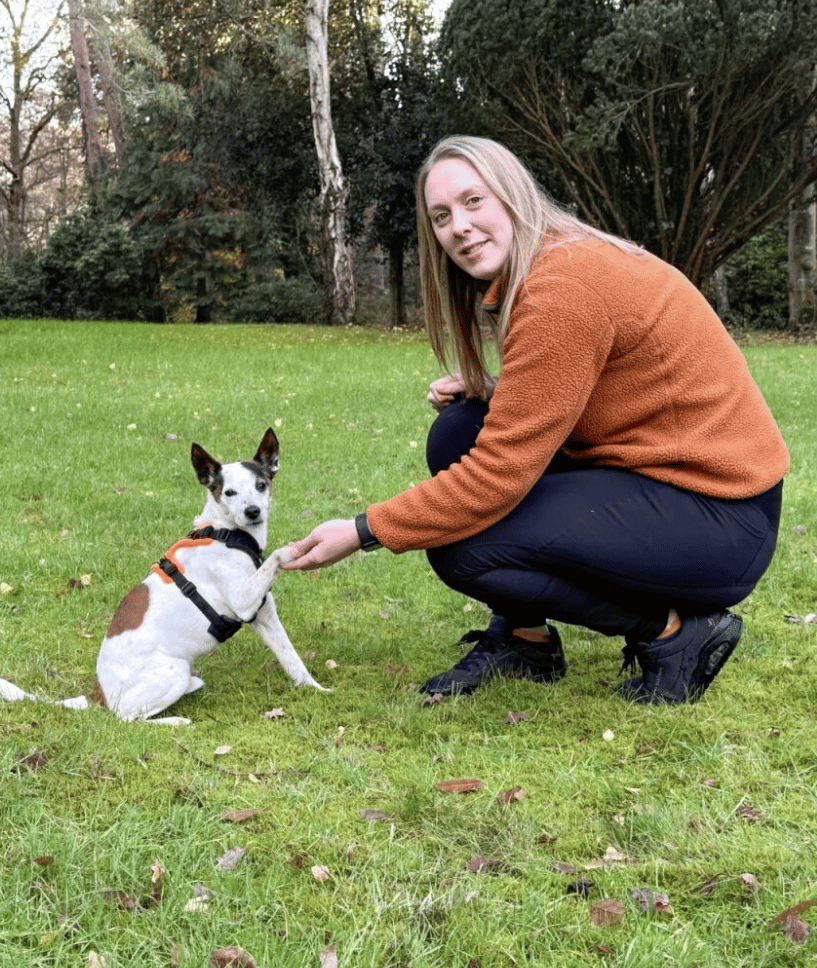Puppy Socialisation: Beyond Dog Play
Puppy Socialisation: Beyond Dog Play
What is socialisation?
Embarking on the journey of puppy parenthood comes with a multitude of joys and responsibilities, and one of the most important concepts to consider is puppy socialisation. Whilst there is a popular idea that socialisation looks like lively scenes of pups frolicking around in the park, it extends far beyond playdates.
Socialisation is a comprehensive process aimed at helping your puppy become familiar and comfortable with all sorts of environmental stimuli, people and, of course, other dogs. Whilst interactions with dogs and people are vital, it’s also key to teach your puppy the skills of observing said stimuli without the immediate impulse to engage in every interaction. In essence, it’s the key to ensuring that your puppy navigates the world with confidence, learning to watch, learn and adapt without succumbing to the overwhelming urge to play or approach every person and dog in sight. In this blog we’ll delve into the intricacies of puppy socialisation, exploring why it’s not just about play but a solid foundation for a well-rounded, calm and socially adept canine who is able to live harmoniously alongside us in our fast paced worlds.
Allowing your puppy to engage with everything in its environment whenever it likes can have challenging repercussions, such as anti-social behaviour, resulting in difficulties managing walks. Puppy harness can help in your training while on walks to ensure it is an enjoyable experience for owner and puppy. Below are some challenges that may occur as a result.
Difficulty Discerning Friendliness
An over aroused puppy who throws itself into every canine interaction may develop issues reading important social cues from other dogs, resulting in the puppy struggling to discern between friendly dogs and dogs who are not so keen to engage. Some dogs are reactive and anxious, and therefore not dog friendly. If your puppy is unable to read body language cues from adult dogs, due to over excitement, it might land itself in a scary situation.
Anti-Social Behaviour
If a puppy becomes accustomed to constant interaction, especially when in an excitable state, it may struggle to develop appropriate social skills and might exhibit behaviours which other dogs don’t appreciate, such as excessive biting or jumping, resulting in a potentially negative dog to dog experience, which may negatively impact future interactions.
Lead Pulling
If your puppy is allowed to always freely approach anything of interest, it may develop a habit of pulling on the lead to reach people and dogs, making walks more challenging and potentially unsafe. A well fitting puppy harness and long line lead can aid in training your puppy to help this behaviour.
Inability to Listen and Focus
Unrestricted access to anything in the environment can contribute to a lack of focus and difficulty in listening to humans. A puppy that is constantly engaging with the environment may find it challenging to concentrate on owner, hindering training progressions.
Impulsivity and Overexcitement
Puppies that have interacted with everything without boundaries or guidance can struggle with overexcitement and impulsivity. This may lead to difficulties in calming down, especially in stimulating environments. This can then lead on to difficulties settling down in a home environment.
How can I help my puppy to feel calm in external environments?
Thinking outside of the box when it comes to puppy socialisation lays the foundation for a well-adjusted and confident canine companion. Rather than allowing unrestricted interactions with all stimuli, a carefully curated socialisation plan enables your puppy to navigate the world harmoniously alongside you. Gradual exposure to various environments, people and animals gives your pup the time to develop essential social skills without feeling overwhelmed. This approach promotes a balanced temperament, harnessing the ability to observe and assess situations calmly. In the following tips we delve into practical techniques that can help you to implement a structured socialisation plan, ensuring a positive and enriching experience for both you and your new puppy.
Go at Your Puppy’s Pace
Respect your puppy’s individual comfort level and pace during socialisation, keeping a close eye on body language cues, which may exhibit signs of fear. Some of these include a lowered body, tucked tail, wide eyes and retreating from stimuli, attempting to escape or running away.
Gradual Exposure
Introduce your puppy to new environments gradually to prevent overwhelming them. Whether its encountering new sounds, meeting unfamiliar people, or exploring different environments, take small steps to build confidence. Gradual exposure helps your puppy acclimatise without triggering anxiety.
Focus on Engagement
Teaching your puppy that when he/she engages with you they get rewarded with high value food will teach your puppy that positive things happen when they interact with you, and therefore discourage the temptation to run up to other dogs and people without appropriate guidance or supervision.
Long Line & Harness
As your pup explores the vastness of the world for the first time, a long line provides the opportunity to explore but prevents impromptu sprints that could lead to unsafe situations. Paired with food rewards when your puppy engages with you, the long line helps to keep your puppy safe and encourage a closer connection with you. A well-designed puppy harness is key to making your puppy feel comfortable and safe, as well as preventing potential injuries caused to the neck from a collar and lead, which is particularly important for excitable pups and their delicate necks.
Cafes and Pubs Etiquette
Prepare your puppy for relaxed outings by getting them accustomed to lying down calmly. Bring a comfortable mat/bed and encourage your pup to settle down beside you. Providing a filled Kong or long-lasting chew will offer mental stimulation and help your puppy to feel calm. Puppies become agitated when they need the toilet or hydration, preventing them from settling. Ensure your pup has regular toilet breaks and has access to water at all times.
In the journey of raising a happy and well-balanced adult dog, let’s look beyond the conventional idea of socialisation as simply play with other dogs and people. Instead, it can be viewed as an opportunity to actually habituate your puppy to the busy world and all its diversity. The key lies not in constant interaction, but in harnessing a state where your puppy can calmly ignore exciting stimuli, be it bustling environments, new sounds, or novel encounters. This approach to socialisation ensures that your canine companion grows into an adaptable and composed adult dog, who is able to navigate the complexities of the world with confidence and calmness. By re-framing our view on socialisation to include habituation and calm observation, we pave the way for a resilient and well-adjusted dog.






